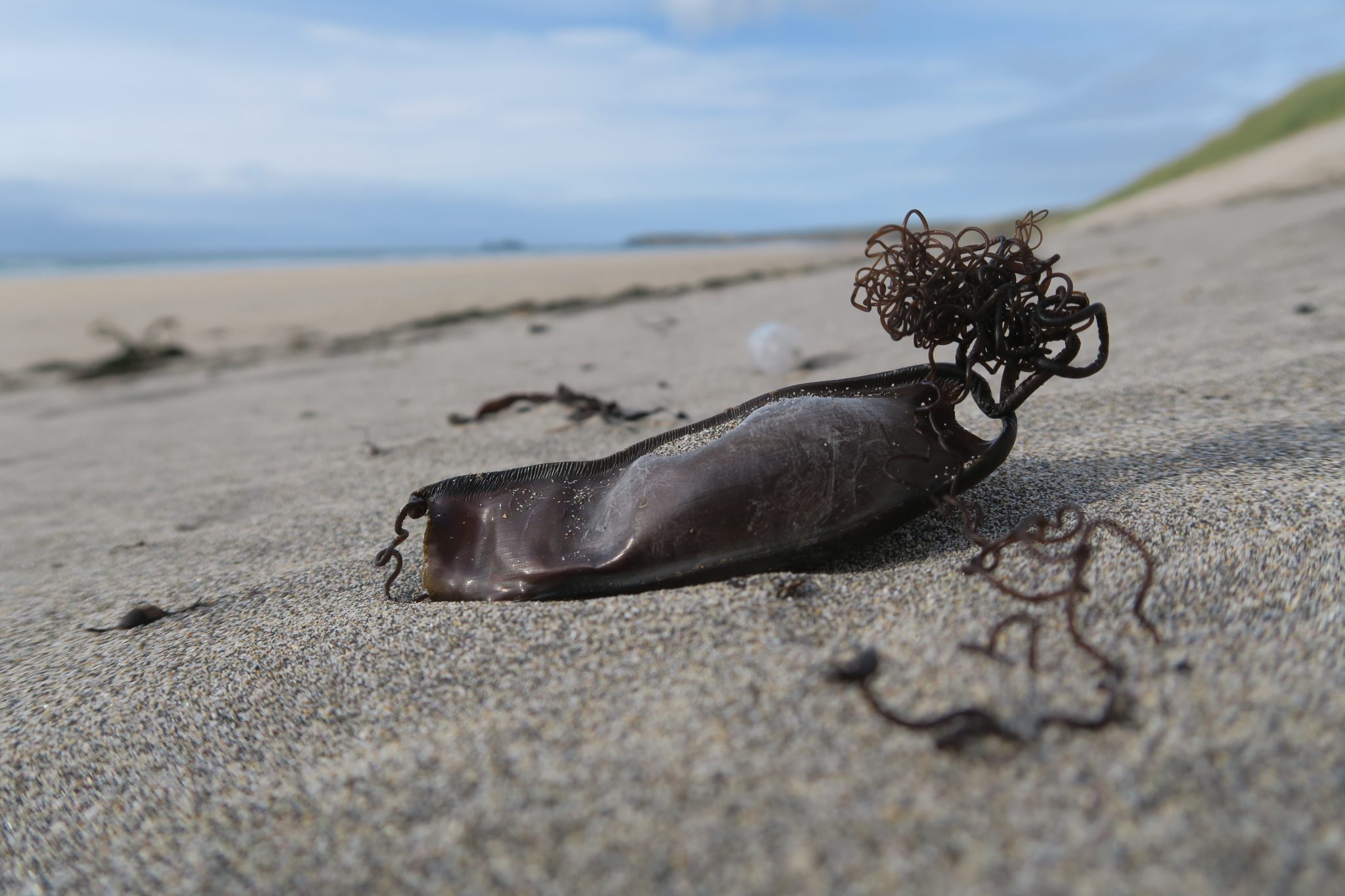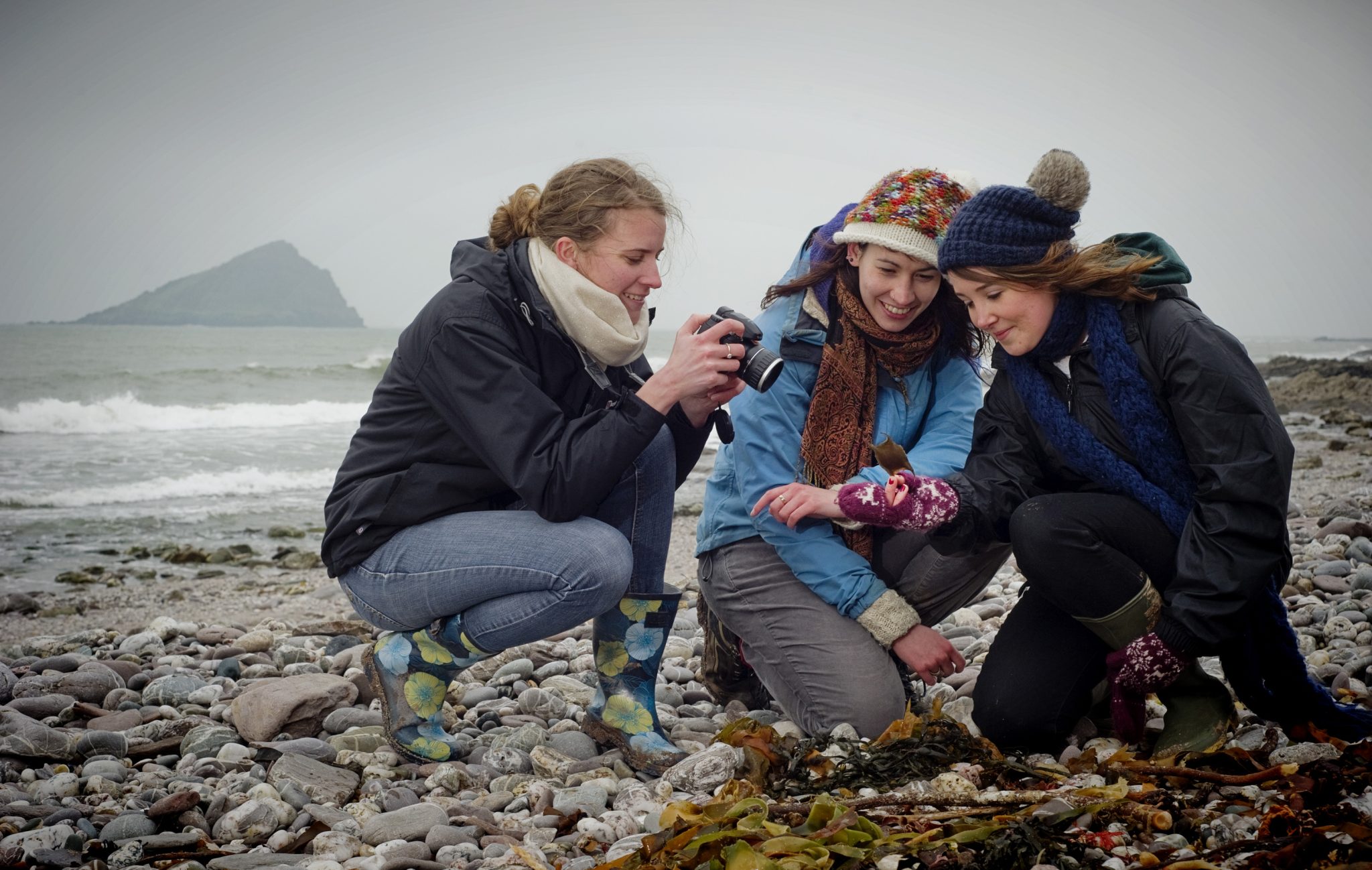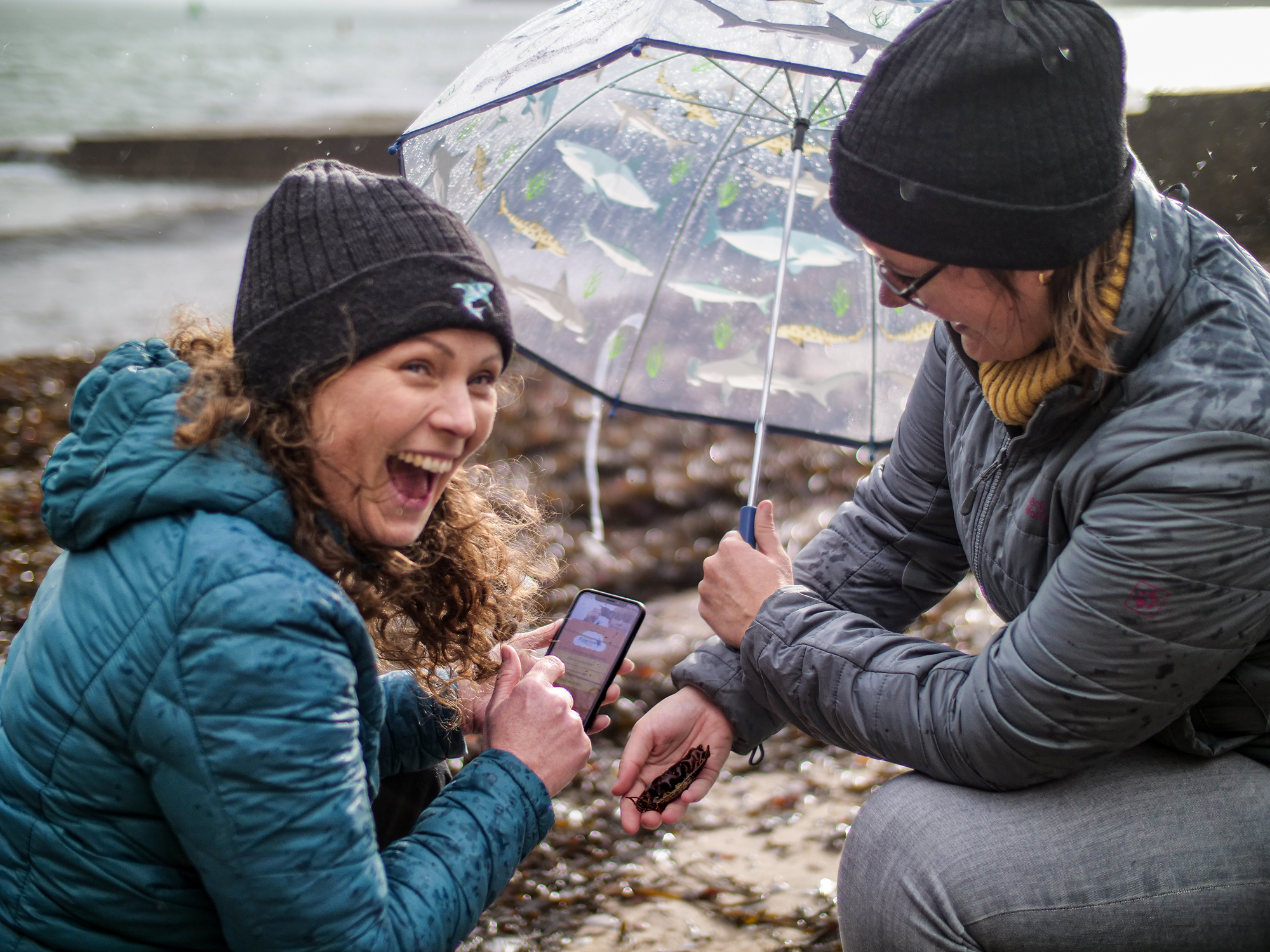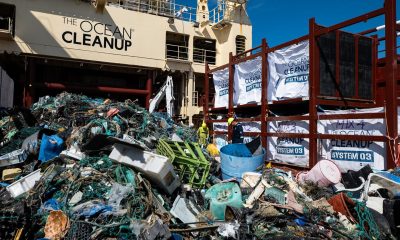Marine Life & Conservation
Divers ask to take part in Easter Egg Hunt with a twist!

 Stuck for ideas on what to do over the Easter Holidays? Want to get outside and do something fun to work off all that chocolate? Want to get closer to nature? The Shark Trust has an Easter Egg Hunt with a difference for you to try. Take part in the Great Eggcase Hunt and get involved with a big citizen science project that helps shark and skate conservation.
Stuck for ideas on what to do over the Easter Holidays? Want to get outside and do something fun to work off all that chocolate? Want to get closer to nature? The Shark Trust has an Easter Egg Hunt with a difference for you to try. Take part in the Great Eggcase Hunt and get involved with a big citizen science project that helps shark and skate conservation.
2023 marks the 20th anniversary since the Great Eggcase Hunt began. To celebrate this monumental milestone, the Shark Trust has launched a new app that features the Great Eggcase Hunt along with four other citizen science projects to take part in. Through these projects, anyone with an interest in sharks, skates and rays can contribute to valuable research by submitting your eggcase finds or shark sightings – while unlocking collectable shark cards as you build your logbook of finds.
Senior Conservation Officer Cat Gordon says “We’re really excited to be celebrating the Great Eggcase Hunt’s 20th anniversary this year! The project has evolved so much since it first began back in 2003. We’re now well on our way to receiving half a million eggcase records!”
New finds from around the world are regularly being added to an ever-growing database. The project now has an impressive 446,000 eggcases recorded from a total of 49 species documented from 30 countries.
Cat goes on to add “One eggcase find may not seem that significant on its own, but when all of this information is brought together it can help us better understand species presence and diversity. It’s also a great way to get involved in shark conservation, and of course, it’s fun – and not to mention competitive!”
Last year saw over 51,600 eggcases recorded in total, and 2023 has got off to a flying start with 22,400 eggcases already recorded since January! It looks set to be a bumper year. During last year’s two-week Easter holidays, we had 7,560 eggcases recorded – this Easter we’re on a mission to keep up momentum and beat the number of submissions! The Shark Trust are hoping that divers will increase the number of in-water sightings in the database this year too.
So, what actually is an eggcase? Some sharks, and all true skates, reproduce by laying eggs. These are surrounded by a tough leathery capsule that protects the embryo as it develops inside. Small slits in the eggcase allow fresh oxygenated seawater in, and let waste out, while a yolk sac provides plenty of nutrition. After several months (although this will vary depending on species) they are ready to hatch. The top of the eggcase will open and a fully formed shark or skate will emerge and be completely independent, having to fend for itself. Once empty, the eggcases (or mermaid’s purses) often wash up on the beach.
You don’t need to be part of an organised event to join in with an eggcase hunt (although check with your local marine centre or aquarium to see if there is one running near you!). All you need to do is head to your nearest beach, or go diving, and take a look around to see what you can find. The best places to search are in the strandline where seaweed and debris washes up, and in sand dunes at the back of the beach as they often get trapped in the grass. Underwater look closely in the seaweed.
The eggcases of different species vary. So, once you’ve found an eggcase, look at the size, shape, and features to identify which species it belongs to – we’ve developed identification resources to help you figure it out! Once you’ve got your answer, head over to the Shark Trust’s Recording Hub or use the new citizen science app to submit your finds.
The Shark Trust is continuing to add to the project’s resources by developing regional identification materials, collaborating with additional partners, and will soon be releasing a series of videos to help those who want to take part in the project and become Eggcase Champions – so watch this space for further developments.
Paul Cox, Shark Trust MD, said “The Great Eggcase Hunt makes for a fantastic family day out at the beach. Once you spot your first one, you’ll find it hard to stop! So get involved with shark conservation and have fun too!“
Find out more: https://www.sharktrust.org/great-eggcase-hunt
Blogs
The Ocean Cleanup Breaks 10,000,000 KG Barrier

The Ocean Cleanup, the global non-profit project, has removed a verified all-time total of ten million kilograms (22 million lbs.) of trash from oceans and rivers around the world – approximately the same weight as the Eiffel Tower.
To complete its mission of ridding the oceans of plastic, The Ocean Cleanup uses a dual strategy: cleaning up the Great Pacific Garbage Patch (GPGP) to remove the plastic already afloat in the oceans, while stopping the flow of plastic from the world’s most polluting rivers.
Through cleaning operations in the GPGP and in rivers in eight countries, the cumulative total of trash removed has now surpassed ten million kilograms. This milestone demonstrates the acceleration of The Ocean Cleanup’s impact, while underlining the astonishing scale of the plastic pollution problem and the need for continued support and action.
While encouraging for the mission, this milestone is only a staging point: millions more tons of plastic still pollute our oceans and The Ocean Cleanup intends to continue learning, improving and innovating to solve this global catastrophe.
This announcement comes as governments from around the world meet to continue negotiations to develop a new legally binding instrument to end plastic pollution at INC4 in Ottawa, Canada. Representatives of The Ocean Cleanup will be in attendance and the organization will be urging decision-makers to collaborate towards a comprehensive and ambitious global treaty which addresses plastic at all stages of its life cycle and in all marine environments worldwide, including in areas beyond national jurisdiction.
It is encouraging to see that the need for remediation is reflected in the various options for potential treaty provisions. It is essential that the final treaty contains clear targets for the remediation of legacy plastic pollution, and reduction of riverine plastic emissions.
Tackling plastic pollution requires innovative and impactful solutions. The treaty should therefore incentivize the innovation ecosystem by fostering innovations that make maximal use of data, technology and scientific knowledge – such as those designed and deployed by The Ocean Cleanup.
‘After many tough years of trial and error, it’s amazing to see our work is starting to pay off – and I am proud of the team who has brought us to this point.’ said Boyan Slat, Founder and CEO of The Ocean Cleanup. ‘While we still have a long way to go, our recent successes fill us with renewed confidence that the oceans can be cleaned.’
The Ocean Cleanup was founded in 2013 and captured its first plastic in 2019, with the first confirmed catch in the GPGP coming soon after the deployment of Interceptor 001 in Jakarta, Indonesia. After surpassing one million kilograms of trash removed in early 2022, the non-profit project has since progressed to the third iteration of its GPGP cleaning solution, known as System 03, and a network of Interceptors currently covering rivers in eight countries, with more deployments set for 2024.
About The Ocean Cleanup
The Ocean Cleanup is an international non-profit organization that develops and scales technologies to rid the world’s oceans of plastic. They aim to achieve this goal through a dual strategy: stemming the inflow via rivers and cleaning up the legacy plastic that has already accumulated in the ocean. For the latter, The Ocean Cleanup develops large-scale systems to efficiently concentrate the plastic for periodic removal. This plastic is tracked and traced through DNV’s chain of custody model to certify claims of origin when recycling it into new products. To curb the tide via rivers, The Ocean Cleanup has developed Interceptor™ solutions to halt and extract riverine plastic before it reaches the ocean. Founded in 2013 by Boyan Slat, The Ocean Cleanup now employs a broadly multi-disciplined team of approximately 140. The foundation is headquartered in Rotterdam, the Netherlands.
For more information, visit: theoceancleanup.com and follow @theoceancleanup on social media.
Marine Life & Conservation
Steve Backshall to headline Shark Trust’s flagship event: For the Love of Sharks

Join a host of amazing, shark loving, speakers including Steve Backshall and the Shark Trust team for an evening celebrating shark conservation at the Royal Geographical Society in London this November.
Date: 29th November 2024
Time: 6-10pm
Location: Royal Geographical Society, London
Tickets: https://www.sharktrust.org/Event/flos24
The event will be a celebration of all things shark. Those lucky enough to get hold of tickets will hear from engaging guest speakers with a passion for sharks.
The line-up includes (*subject to change if unforeseen circumstances arise)
Steve Backshall: One of television’s busiest presenters, BAFTA award-winning wildlife expert Steve has been passionate about the wild world ever since he was young.
Steve’s impressive TV career has taken him all around the world, investigating a wide array of species and environments. Steve has filmed over 100 hours of children’s wildlife programmes with the BAFTA award winning Deadly 60 franchise and recently, with Sky Nature, for his new series ‘Whale with Steve Backshall’. He has been a patron for the Shark Trust for 10 years.
Simon Rogerson: is a photojournalist specialising in natural history, diving and the sea.
He is editor of SCUBA magazine, the official journal of the British Sub-Aqua Club. Simon started his career as a crime reporter but gravitated towards his ‘less depressing’ interest in underwater exploration, joining the staff of DIVE magazine in 1999. In 2005 he was named ‘Editor of the Year’ in the PPA’s Independent Publishing Awards. Simon also works as a freelance writer, contributing frequently to the Sunday Times and Telegraph, in addition to BBC Wildlife, Esquire, and a host of international diving magazines. He is the author of a book, Dive Red Sea, published by Ultimate Sports. Now based in Berkshire, Simon has been a Patron of the Shark Trust for 20 years.
More speakers to be announced soon. Head to the Shark Trust website to learn more.
The evening will also allow guests the final chance to see the Oceanic 31, shark art exhibition. Some of the artwork will be auctioned/raffled at the event, while the rest will be auctioned online to raise money for the Shark Trust Oceanic Programme.
For the Love of Sharks is an evening with something for everyone who is interested and fascinated by sharks. Join the Shark Trust, their Patrons, Trustees and Staff, along with a host of supporters for this celebration of shark conservation.
For more information or to buy a ticket: https://www.sharktrust.org/Event/flos24
-

 News3 months ago
News3 months agoCapturing Critters in Lembeh Underwater Photography Workshop 2024: Event Roundup
-

 Marine Life & Conservation Blogs3 months ago
Marine Life & Conservation Blogs3 months agoCreature Feature: Swell Sharks
-

 Blogs2 months ago
Blogs2 months agoMurex Resorts: Passport to Paradise!
-

 Blogs2 months ago
Blogs2 months agoDiver Discovering Whale Skeletons Beneath Ice Judged World’s Best Underwater Photograph
-

 Gear Reviews3 weeks ago
Gear Reviews3 weeks agoGEAR REVIEW – Revolutionising Diving Comfort: The Sharkskin T2 Chillproof Suit
-

 Gear Reviews3 months ago
Gear Reviews3 months agoGear Review: Oceanic+ Dive Housing for iPhone
-

 News2 months ago
News2 months agoPADI Teams Up with Wellness Brand Neuro to Drive Ocean Change and Create a Blue State of Mind
-

 Marine Life & Conservation2 months ago
Marine Life & Conservation2 months agoSave the Manatee Club launches brand new webcams at Silver Springs State Park, Florida




















